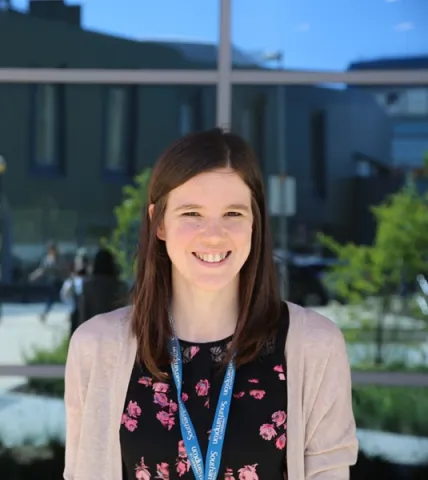Project overview
Aim
This project aims to make it possible to develop a toolkit that will improve the lives of young people with severe food allergy and anaphylaxis by finding out what young people need to help them manage their condition.
Why is this important?
Around 20 people in the UK die from a severe allergic reaction to a food trigger (anaphylaxis) every year. Hospital admissions for anaphylaxis in the UK continue to increase, and young people seem to be at higher risk of life-threating anaphylaxis. Living with this risk can have a big impact on young peoples’ daily life. This can include anxiety, feeling isolated or 'different', difficult relationships with food and difficulty trusting others.
Young people may need extra help as they learn to become more independent in managing their condition. Although support for self-management can be provided through health services, it could be supplemented by an online toolkit.
To develop a toolkit that is meaningful and useful to young people we need to know:
- what helps and hinders young people to manage the day-to-day risk of anaphylaxis (including avoiding food triggers, carrying adrenalin ‘pens’ and feeling confident to use them)
- what they think of plans for a new online toolkit to help them self-manage their condition
What will we do?
To find out what helps and hinders young people to manage the day-to-day risk of anaphylaxis we will talk to:
- young people aged 13-25 with anaphylaxis
- parents or carers of young people aged 13-25 with anaphylaxis
We will use information from these conversations to design the online toolkit. which will then be developed further through discussion with stakeholders including relevant charities, patient groups and health professionals.
To find out what young people think of the plans for a new online toolkit we will ask young people to work through them and say out loud what they are thinking. We will use information from these ‘think aloud’ interviews to further develop and refine the resources. Young people will be invited to take part in the project in a variety of ways such as general practices, hospitals, and social media advertising.
Patient and Public Involvement
This work is supported by Natasha Allergy Research Foundation and Anaphylaxis Campaign, who have reviewed this application and are keen to support the project. We will involve young people with anaphylaxis throughout the study, as well as engaging with relevant charities.
Next steps
We plan to make sure that young people at risk of food anaphylaxis have a good understanding of avoiding allergens and managing anaphylaxis. We aim to develop self-management support to help young people to manage the condition as effectively as possible while seeking to also improve quality of life.
This project aims to make it possible to develop a toolkit that will improve the lives of young people with severe food allergy and anaphylaxis by finding out what young people need to help them manage their condition.
Why is this important?
Around 20 people in the UK die from a severe allergic reaction to a food trigger (anaphylaxis) every year. Hospital admissions for anaphylaxis in the UK continue to increase, and young people seem to be at higher risk of life-threating anaphylaxis. Living with this risk can have a big impact on young peoples’ daily life. This can include anxiety, feeling isolated or 'different', difficult relationships with food and difficulty trusting others.
Young people may need extra help as they learn to become more independent in managing their condition. Although support for self-management can be provided through health services, it could be supplemented by an online toolkit.
To develop a toolkit that is meaningful and useful to young people we need to know:
- what helps and hinders young people to manage the day-to-day risk of anaphylaxis (including avoiding food triggers, carrying adrenalin ‘pens’ and feeling confident to use them)
- what they think of plans for a new online toolkit to help them self-manage their condition
What will we do?
To find out what helps and hinders young people to manage the day-to-day risk of anaphylaxis we will talk to:
- young people aged 13-25 with anaphylaxis
- parents or carers of young people aged 13-25 with anaphylaxis
We will use information from these conversations to design the online toolkit. which will then be developed further through discussion with stakeholders including relevant charities, patient groups and health professionals.
To find out what young people think of the plans for a new online toolkit we will ask young people to work through them and say out loud what they are thinking. We will use information from these ‘think aloud’ interviews to further develop and refine the resources. Young people will be invited to take part in the project in a variety of ways such as general practices, hospitals, and social media advertising.
Patient and Public Involvement
This work is supported by Natasha Allergy Research Foundation and Anaphylaxis Campaign, who have reviewed this application and are keen to support the project. We will involve young people with anaphylaxis throughout the study, as well as engaging with relevant charities.
Next steps
We plan to make sure that young people at risk of food anaphylaxis have a good understanding of avoiding allergens and managing anaphylaxis. We aim to develop self-management support to help young people to manage the condition as effectively as possible while seeking to also improve quality of life.


